“I love business and I care about the environment,” says Deborah Meaden of her twin passions, in a typically straightforward, straight-talking way. We’re speaking over Zoom and Meaden is at home with her dogs after returning from a morning horse ride, admitting she’s “a much nicer person when I’ve been riding.”
Meaden is something of a rarity in business in a few ways; a woman with a high profile, a vocal critic of Brexit and outspoken on the need for climate action.
The 64-year-old made her money by buying and expanding the family holiday business, before rising to fame on BBC1’s Dragon’s Den, investing in start-ups and teased by her fellow dragons for her interests in environmental issues.
But it was a prescient interest, as it turns out, as she is now arguably one of the leading spokespeople for ‘green’ business. Nowadays, she also presents a BBC 5 Live radio show and podcast, The Big Green Money Show, and is known as a leading commentator and consultant on ESG (that’s environmental and social governance in business-speak), alongside her ambassador roles for prominent wildlife charities the RSPB and Tusk.
Her latest project, a children’s book called Why Money Matters, talks six-to-nine-year olds through basic finance, helping them foster a healthy relationship with money. After a publisher approached her to write the book, she briefly wondered whether she’d know enough about how childrens’ minds work, not having them herself. “But how hard can it be?” she recalls thinking, before laughing uproariously. “I thought I’ll just write what I think they should know and then I’ll just simplify it. It was such a good exercise. And it made me realise how we over complicate things as we get older.”
I’ve never suffered from a lack of confidence and that is actually quite a powerful thing.
Meaden laughs frequently and loudly, but never in a self-deprecating way; she seems genuinely amused and full of energy. Confidence is certainly not a quality that she lacks, as you might imagine from a person in her position. Though it’s a confidence that feels empowering, rather than arrogant, and the sort you feel could turn a lot of women’s worlds around.
“I’ve never suffered from a lack of confidence and that is actually quite a powerful thing,” she reflects. “It’s quite a gift. I don’t know why that is. Maybe, I had a mother who had a really tough start and I saw her work her way out of it.
“But that is my approach to life: whatever happens, I’m going to be able to find a way over it, and that does give you confidence. Knowing that I’m not stupid, I genuinely think to myself, if I’m not understanding then it’s not my problem; you’re obviously not getting the message across.
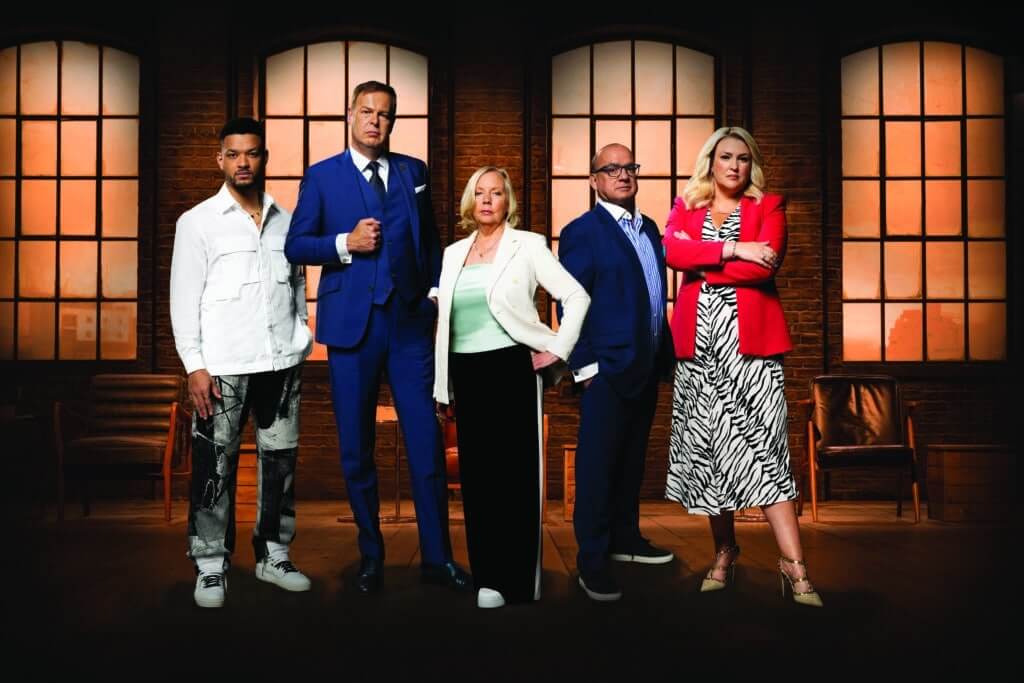
“It’s a simple thing to fix but a hard thing to fix. It’s simple because you start putting the onus on the other person – and that is an issue because women do tend to take responsibility, [they say] ‘it’s my fault, I know it’s my fault’.
“And I don’t think that. There are definitely things that are my fault, but to be able to recognise the moment when you think ‘hold on a minute, this isn’t me, this is you’, and being able to say that is very powerful.”
It’s no surprise that, with her interest in clarity, Meaden has mastered the art of communication and become a rare link between the closed doors of finance and the rest of the world – a role perhaps jointly inhabited only with Martin Lewis. “I just come across so many people who overcomplicate everything,” she says. “I don’t know if that’s intentional, because that could mean fees if they’re advisors. Or it could be that it makes them feel cleverer. I am always that person who says ‘I am not stupid so you’re just going to have to keep explaining.'”
She will, she says, often ask “a really basic question” in a room full of people, using her position of influence to demonstrate that it’s fine to ask questions and encourage others to do so. Less flashy than her offers of £100k for 20 per cent of your business, perhaps, but no less of a leg up and a subversive counter to exclusive business environments.
Anyone claiming to be completely sustainable, it’s rubbish. Everything we do has an impact.
Describing herself as a purist when it comes to fossil fuels (“they’re bad news and we need to get rid of them”), Meaden does not hide the fact she believes we need to act faster on climate action, and has tweeted in support of direct action group Just Stop Oil. In her personal life, she follows a vegan diet and hasn’t flown long-haul for five years, though she will be travelling to Antarctica this winter with her husband Paul. “We’ve made a conscious decision not to fly as much because I can’t be worried about the planet and not be prepared to change my behaviour,” she says.
But for all her environmentalism, she is also an entrepreneur at heart and sees the limits on what businesses can do without becoming redundant.
Her podcast and radio show, which interviews high-profile brands like EasyJet and Nestlé, treads this exact line and more than once raises the question, to my mind, whether changing the practices of multinationals is ever going to be enough to transform global society.
The premise, as she puts it, is that: “There is not a business in the world, including my businesses, that when you turn a stone over you don’t think ‘I shouldn’t have done that’. We should be encouraging the good behaviour.
“A couple of times I was criticised for talking to them [EasyJet and Nestlé]. But my view is these are the people who change the world. Actually consumers change the world – consumers say ‘we want a different way’ and businesses respond by showing them a different way.
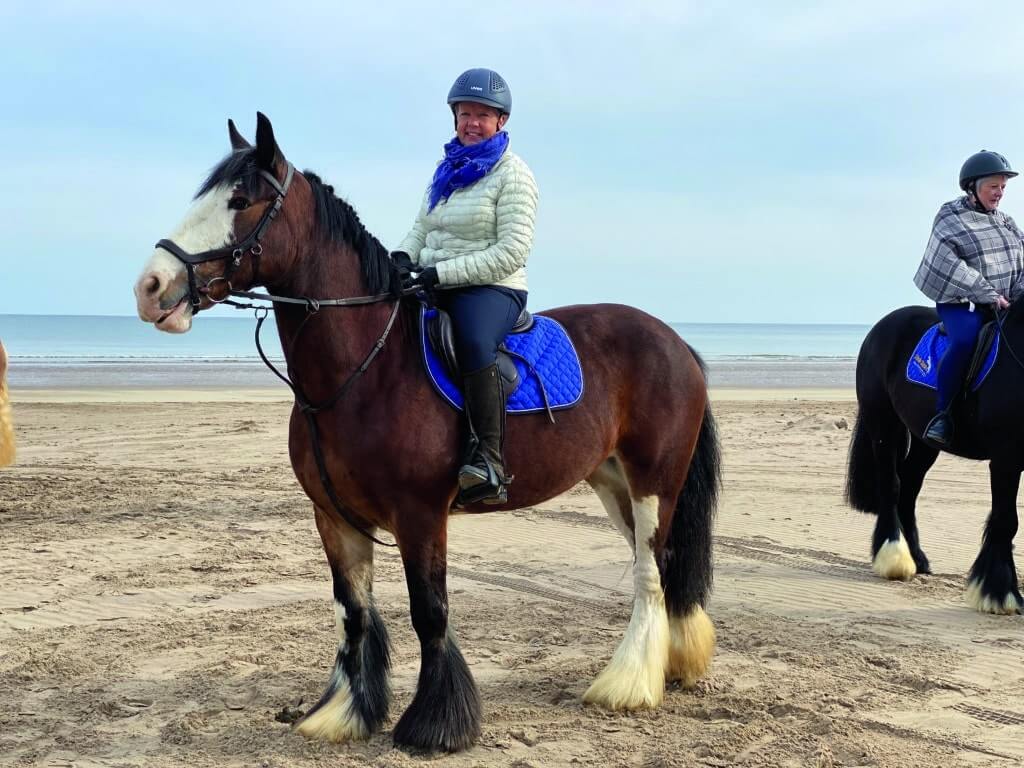
“The problem with climate is that it will get beyond our control. My sense of all of this is that human beings are amazing when we put our mind to something,” she says. “The question isn’t ‘can we do this?’ The question is ‘will we do it, in time?’ Yes it’s doable. The fear is that we will drive ourselves to the edge, and climate change is different to everything else.
“I’m very hopeful that businesses are on board – not all businesses, though some are doing some fantastic stuff. I’m fearful that we’re not going to tackle it in time.”
Given this deadline, should we not radically change the way we fundamentally buy and produce things, rather than tinkering round the edges? A difficult question perhaps for someone whose passion is selling goods and services, albeit trying to do so with a lower impact.
“Yes of course, that would be my hope,” she says. “But the honest truth is we wouldn’t like it. We would not accept the scale of change at the speed at which it needs to change. And maybe that’s why I got such big names, because as a businessperson I can get the problem. Because actually the answer for EasyJet is to stop flying. Would we like that?
“Honestly, would everyone like not being able to go on their holidays and not being able to go to Spain or Greece? We’re fearful of change. We like gradual change. I have sympathy for some of these businesses – they are at-the-end-of-the-day businesses.”
On the other hand, reflecting on whether she has ever been ostracised by the business community for her outspoken views (as well as climate change, she is vocal on the negative impact of Brexit for business), she says: “What I do get sometimes on a one-to-one basis, is ‘our van was stuck on the M3 for three hours because of [Just] Stop Oil’. And I’m quite quick to point out that if you think that’s inconvenient, you wait to see what climate change delivers on our doorstep.”
She’s also sharp on how to spot greenwash. “Anyone claiming to be completely sustainable, it’s rubbish. Everything we do has an impact.
“You should be able to, very quickly, understand what a company’s version of green is. If you go onto a website and it takes 27 pages to find in some dark corner embedded in their website what their policy is, then I wouldn’t trust it,” she says, adding that a good business should have “a tab right there saying ‘this is what we mean by green’”.
“What I say to my businesses is: ‘say what you mean’. What do you mean by ethical? What do you mean by green? Actually what builds trust is telling people what you’re not doing, as much as what you are doing.”
It’s fair to say that not all the world’s problems lie at the feet of big business. In the UK, at least, the issue of affordability and widening inequality is just as much of a barrier to meeting the challenge of climate change. The cost of buying sustainable products, whether that’s organic food or taking a train instead of a plane, is so much more that it immediately alienates large proportions of the country. There is only so much even an ethical business can do to solve this when faced with the macro trends of economic instability, rising house prices and stark societal inequality.
“Anybody in this country not being able to afford food, we should all shudder,” agrees Meaden. “We really should shudder at that. I agree with breakfast clubs for children. And I do think there has got to be a Living Wage. We can’t live in a society that is getting a wider and wider gap between the uber rich and those who can’t afford to heat or eat. I mean that’s wrong. That’s not right, is it?
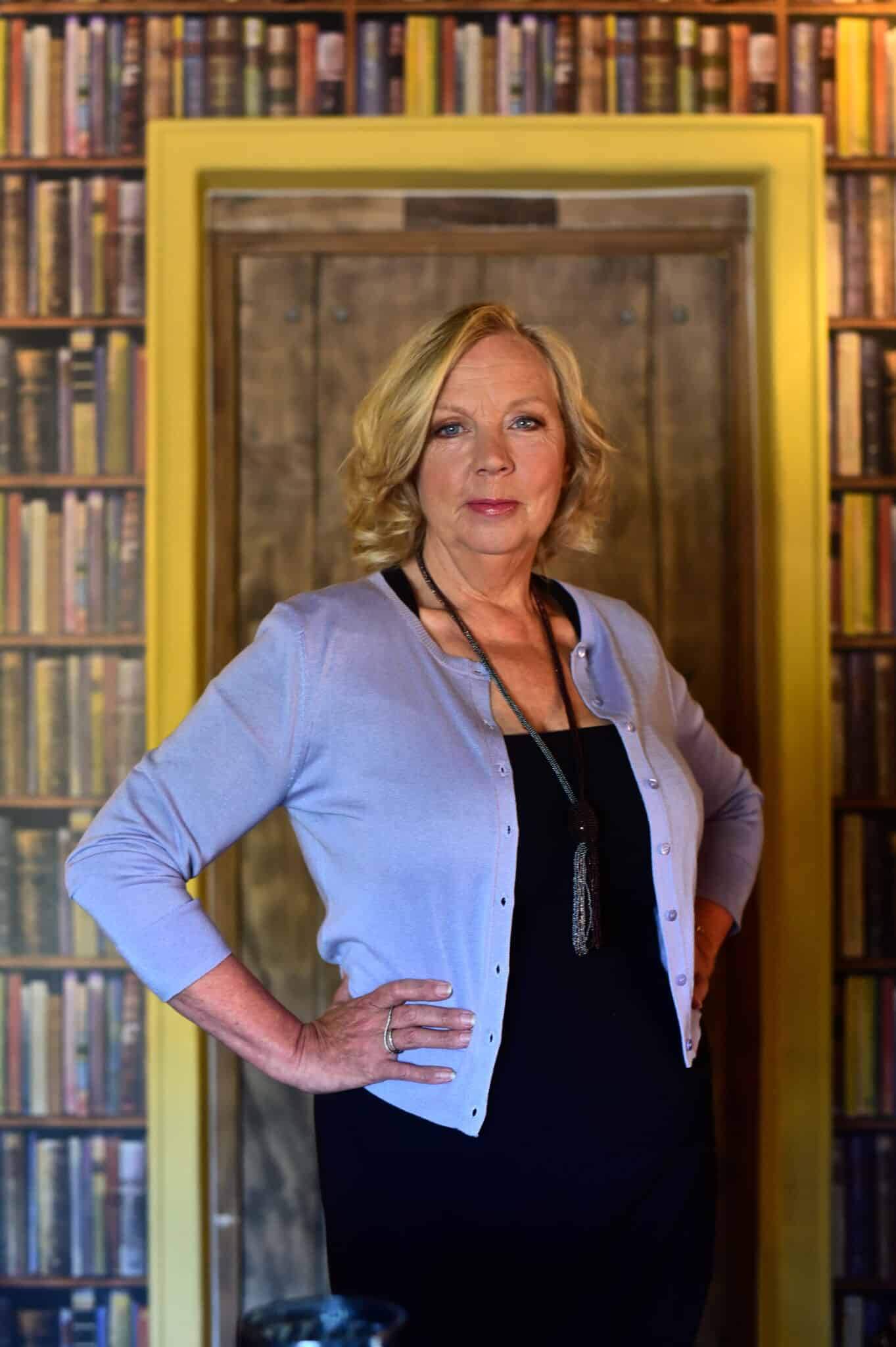
“Climate change is different to everything else.”
“We know what the answer is but we don’t like it when the answer affects us. When you’ve actually got to pay more tax into the system, then everybody doesn’t like it. But who pays for it? I’m one of those people; I don’t mind paying tax. I do mind how my money’s spent.
“My book has a big section on tax, even for six-to-nine-year olds. If you want a happy, healthy and safe society, which surely we all do, if we want that, we have to pay into that. This is exactly what my book’s about: a healthy mindset with money.”
We can but hope that some of Meaden’s millionaire peers may also have a read of what is already a best-seller on young children’s book lists, but in the meantime she also thinks the government has a role to play. Though, rather than being drawn on rental caps or Universal Basic Income, as a true businessperson she believes that fixing the economy has to be the first step, along with support for the supply chain and farmers to prevent prices rising while they invest in more sustainable practices.
“If you can pay for it, pay for it,” she says. “Because that helps generate a market and once you get a market, prices come down. If you can’t pay for it, I do think there needs to be some governmental support. Because it will always be the most vulnerable who are hit first.
“I do think the government must play a part in making sure that the most vulnerable are protected in the intermediate stages as we transition to clean energy and net zero. Once we get on our path, what’s not good about cheaper energy, better food security, cleaner air? But it’s the transition bit in the middle that is the problem.”
She has much sympathy for farmers “doing what they were asked to do, which is after the war, feed the nation”. “We now realise that is unsustainable and we need to switch to a different food system. There needs to be support for farmers to switch. Because it is going to be lower yield and then they will get criticised for it being more expensive. In that interim period we’re all going to fall out with farming, completely unfairly. Because they’re doing what we’re asking them to do.
“So there needs to be support for farmers, whether that’s tax breaks or subsidies to encourage more biodiverse farming.”
For many involved in the cultural and political aspects of a green transition, the answer, in part at least, comes down to what the government will do to enforce new ways of helping us live greener lives and running greener businesses.
Though her work is mostly involved in the dialogue between consumers and business (she is a keynote speaker at the Blue Earth Summit this October), Meaden has “conversational” contact with government ministers on an informal basis, several of whom she has met with in person. “I’m very happy to step in. I will not align myself with any particular party until I know what their policies are and until I believe they will follow them through,” she says.
“I’m not suited to politics because I won’t toe the line. I won’t say what I won’t believe in and I wouldn’t tell my constituents what they wanted to hear. And I would last two seconds flat. I consider my position as a good, loud commentator. That’s how I think I should use my voice best. And sometimes to commentate from the outside is as powerful, if not more powerful, than being inside the system.”
Meaden is not known for the glamorous lifestyle of multimillionaires, such as those of some of her fellow Dragons, instead spending most of her spare money on restoring their old Somerset farmhouse. “And I like investing. It’s what I do,” she adds, describing her work as “energising”. “I love finding businesses that just need that little bit of help. I love it because I love people. The people I talk to are so creative and so full of energy and ideas, how can I not love that?”
But while money doesn’t make you happy (she “knows a lot of very unhappy multimillionaires”), one thing Meaden does know is the power of money to get you somewhere. And with some of her boundless energy focused on the environment, she clearly believes in the power of finance and her own position to bring the two together.
As she puts it: “I’ve seen a big change in business, which is fantastic because actually when it becomes a commercial thing, that’s when you get people who aren’t terribly interested in climate change or net zero or biodiversity, but they’re driven commercially, and that means you can sweep everybody into it.
“And that’s what we need, for goodness’ sake. We can’t sort this out in silos; everybody needs to be on board.”
This interview was on the front cover of the new print issue of Wicked Leeks, out now. You can read the full magazine online for free.

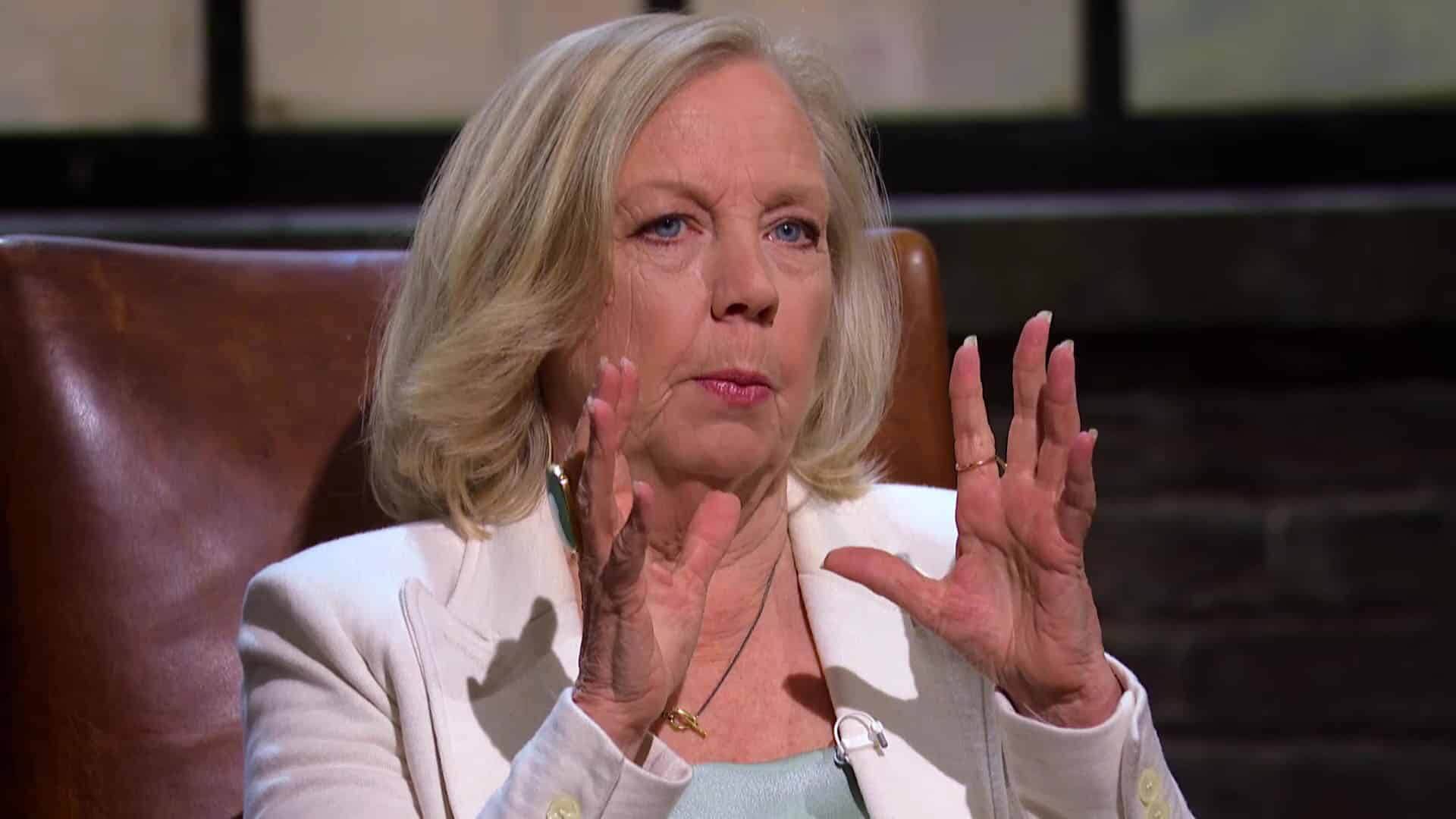


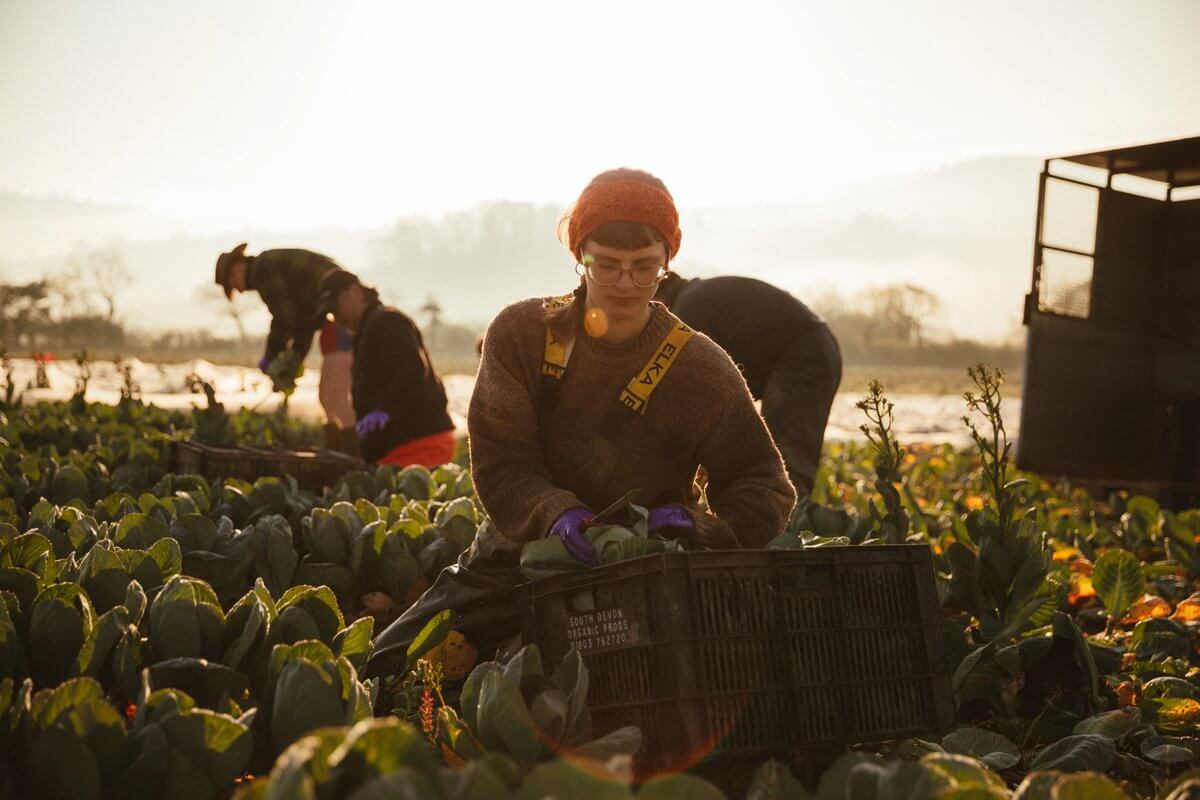




Such an inspiring read. Bravo Deborah! Why do we allow politics to stifle or cancel our clear and considered strategists? Long term threats like climate change need decisive long term plans. Social justice needs a clear and decisive plan to reduce inequality and feed our communities. Why is a living minimum wage not a valuable step? Why is tax applied to green solutions like wind farms? As Deborah points out we will all pay as the climate adversely changes. How do we change and survive? Politics?
Such important questions to ask Ian! We’ve selected this as our star comment of the month so keep your eyes peeled for it being featured in this Sunday’s email and hopefully others will join the conversation with their thoughts.
You spoke to me. I was approached to stand for election to the Local Council – I lead a local environmental group. I refused. When asked why, I said – because I’m no good at lying.